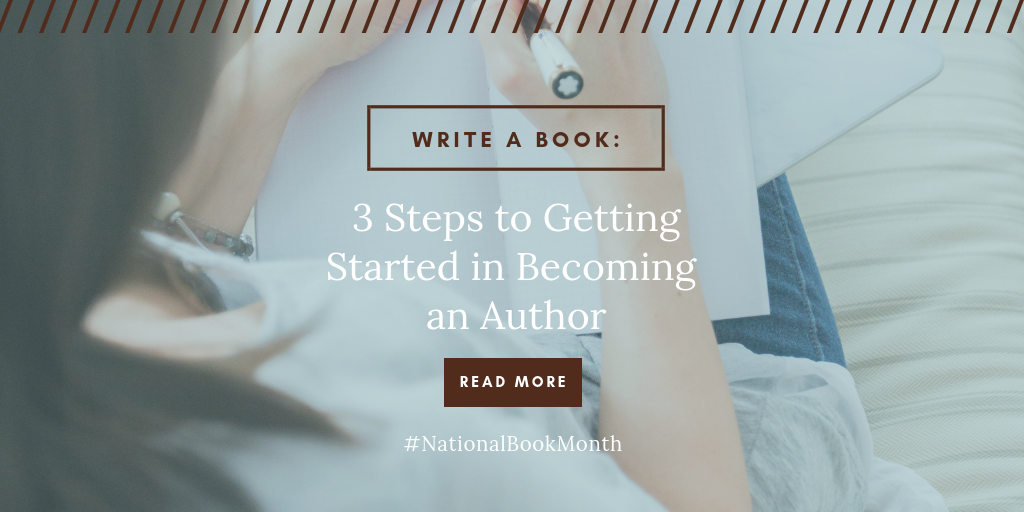
October is National Book Month and most business owners have a list of books that serve as “go to” for inspiration and resources to help their business grow and thrive.
But what about writing a book yourself to inspire others, provide a valuable resource and establish your own credibility and expertise? It serves as a “big business card,” is physical proof of your knowledge and opens doors to media interviews and speaking opportunities.
[bctt tweet=”Writing a book serves as a “big business card,” is physical proof of your knowledge and opens doors to media interviews and speaking opportunities. ” username=”@DonnaKozik”]
Also, having a book means you can be on one of the world’s biggest search engines—I’m talking Amazon.com. People who are ready to buy are looking for information from experts in your field. You want to be represented on this site.
(Besides, it’s a cool thing to say you’re on Amazon.)
You might know that it’s easier than ever thanks to the acceptance of self-publishing and easy of demand. You probably have even seen mentors, colleagues and friends write and publish their own books. So why not do one yourself?
Some people stop themselves before they start by asking “Who would read what I have to write?” Or they think, “It’s all be said before.” Others get tripped up on what comes after the book is done. They say, “I won’t know how to publish it?” or “How do I promote it?”
Actually, all of these questions can be answered by the “doing.”
Here are some steps to getting started with your book, otherwise known as your “big business card.”
Step One: Get clear on your vision.
At the start of my weekend book writing programs, I have participants create a vision statement for themselves that answers the questions “What will my life look like when my book is done?” and “What will I be doing as an author?” I encourage them to keep in fun and light, yet make it real by seeing themselves holding a copy of their book in their hands and signing that first copy to give to someone special. It helps keep the motivation burning throughout the process.
Step Two: Write what you know.
It’s the long-time author adage that holds true even for business owners and entrepreneurs. You have special talents and skills you bring to the table—tell the world about them in a book! If you’re stumped about where to start, think about initial questions you get from prospects or what you share about yourself in that first meeting. Put in some dashes of inspiration and how to and you’re on your way!
Step three. Get started with “a book” not “the book.”
This is the biggest thing that stops people from getting a book done—they take on too much. You don’t have to write the War & Peace of your industry—get started with a subject that’s an “inch wide, mile deep.” Do a deep dive into something that interests you and readers. This allows you to get your arms and head wrapped around the whole book writing and publishing process so you learn how to go about it and get something out there. After that, the sky is the limit for your publishing future!
Here’s a bonus tip: Think Kindle to start. Kindle ebooks can be shorter than physical books – sometimes only a third of the size. But you can pack them with great information and make them available for a price that makes it easy for readers to say yes. In fact, you probably already have content you can recycle by re-writing for a Kindle ebook.
It’s great to publish a book and call yourself an author. I encourage you to get started today!
Donna Kozik is an award-winning USA TODAY and Amazon best-selling author who shows people how to become authors fast and easy with her virtual online “Write a Book in a Weekend” events. To get started on your “big business card” of a book, download a free book planner at http://freebookplanner.com.





